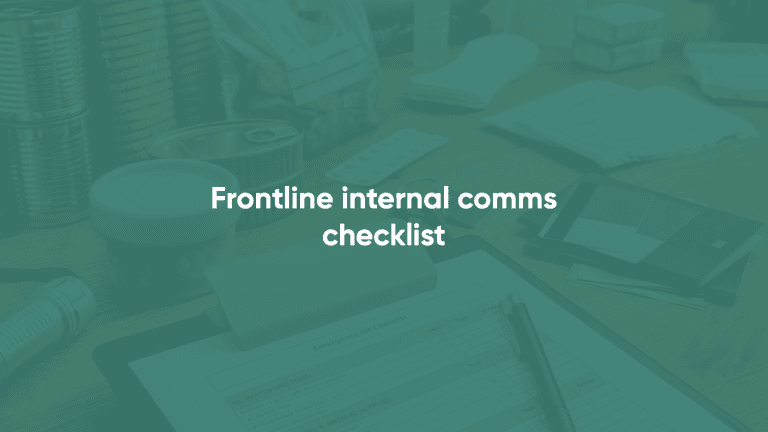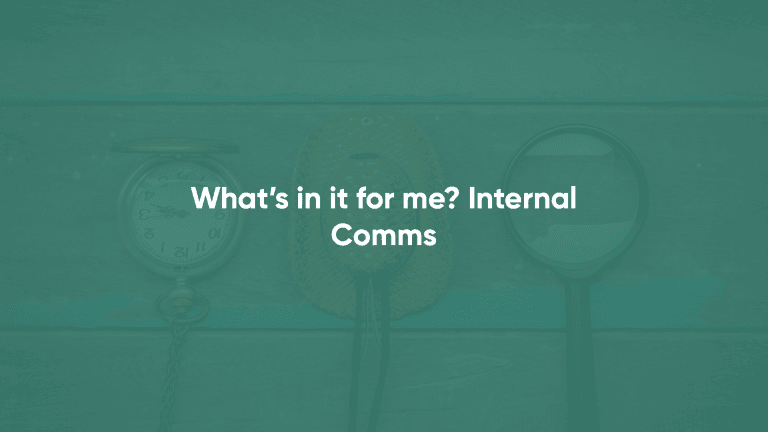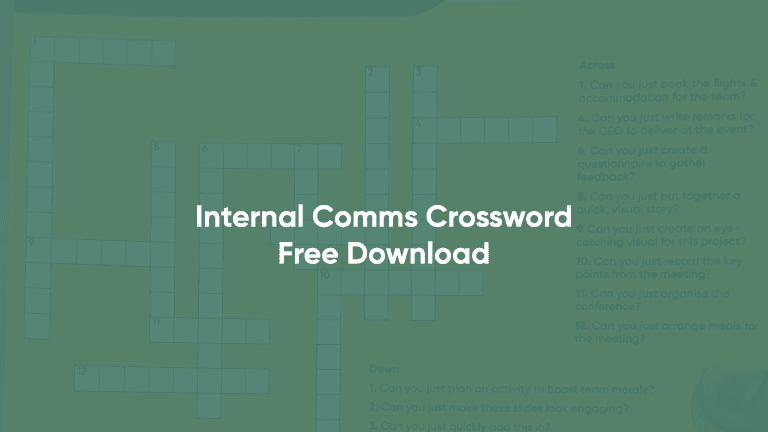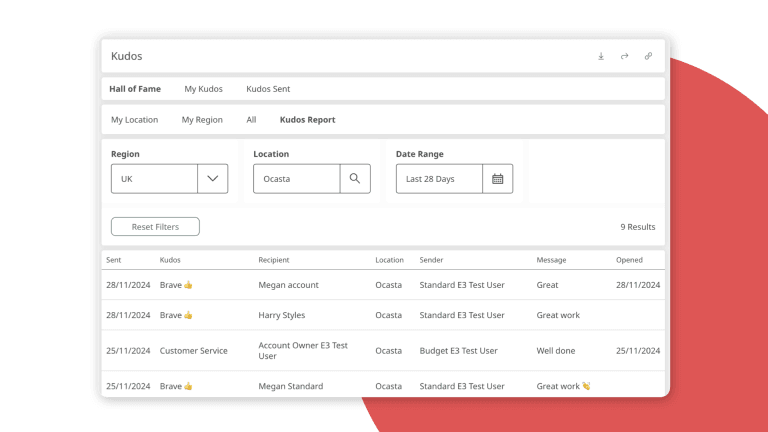
1. They get frustrated when they have to wait
-
Customers – don’t like waiting whether this is to be served, in a queue or on the phone. According to a survey carried out by American Express the maximum amount of time customers are willing to wait is a maximum of 13 minutes.
-
Employees – aren’t a fan of waiting either. An example of when they hate waiting is when there is a problem which is hindering service and staff have been waiting for weeks for someone to repair it.
TIP: A lot of companies place a huge emphasis on reducing waiting times for customers, but less are focused on reducing them for employees. This can result in demotivation and negative attitudes such as “If they can’t be bothered to fix it why should I care.”
If there are problems on the shop/restaurant/factory floor, it is essential that you have a system in place to fix them right away. Ocasta’s digital checklists are used by employees to check off their daily tasks, any checks which are not done are flagged to head office so they are fixed immediately.
2. They feel let down when there is no one to talk to
-
Customers – how annoying is it when you have a problem with your account and you can’t get through to speak to someone? In fact, 67% of customers have hung up the phone out of frustration because they can’t get through to anyone (American Express).
-
Employees – need to be able to communicate their ideas, feelings and problems at work otherwise they can begin to feel isolated and disengaged. If there is no formal process to do this and management are always busy then most employees will not speak to anyone. In fact, according to a survey from ClearCompany, businesses with effective communication are 50% more likely to have lower employee turnover.
TIP: Sometimes you need to make it clearer to employees what they have to do if they have something they want to share. If you have a how-to guide or a form they could fill out online it would encourage communication and make it feel like less of a burden.
3. They get annoyed when people don’t have the correct information
-
Customers – according to ThinkJar 84% of customers are frustrated when the service agent doesn’t have the correct information. It also annoys customers when their questions aren’t answered, according to consumers, customer service agents failed to answer their questions 50% of the time (Harris Interactive).
-
Employees – find it irritating when one member of staff tells them one thing, and another member of staff tells them something different. 83% of employees experienced a more positive work environment when they felt there was trust in their managers/organisation (IBM).
TIP: Sometimes incorrect information is given because there is no central place for information or guidance. This leads to staff assuming, or guessing the answers to things which causes disorder and confusion within an organisation.
Ocasta can help keep your business consistent wherever your staff may be. All processes, manuals, information, and documentation are kept up to date for streamlined working.
4. They like being noticed
-
Customers – like being recognised for their loyalty to a company and receiving a reward for this. A survey carried out by Nielson found that 84% of consumers are more likely to choose a retailer that offers a loyalty programme.
-
Employees – like being noticed for their hard work and recognition is one of the most important factors for employee engagement. 93% of people hope to be recognised at least once a quarter at work (Achievers).
TIP: An easy way to make employees feel valued is to ingrain recognition into everyday conversation. For example “Here is the new deal we have on at the moment, I’m sure you’ll be great at selling it as you did so well last month.”
5. They like being treated as a human being not a number
-
Customers – hate it when customer service agents simply follow a script and provide no leeway or consideration for their particular circumstance.
-
Employees – feel unmotivated when their managers don’t listen to them or understand them. This makes them feel like just another cog in the wheel of the business. For example, a member of staff was away for a training course which took two days of the working week, yet they were still compared to their colleagues who were working for the full week in terms of sales or performance figures.
TIP: Don’t treat everyone the same and be mindful of everyone’s circumstances to ensure they are treated fairly, not equally. Sometimes it is hard to keep up with everyone’s personal situations, so it is important to ask them the ‘why’ behind certain contexts so you can understand better.
6. They like companies who work flexibly with them
-
Customers – find it annoying when they order something online and the company gives a delivery slot of 10am-6pm at night. This means they have to stay in for the delivery or miss the post altogether.
-
Employees – want solutions or flexible working for a number of reasons including childcare duties, better work-life balance or managing their day better.
TIP: An easy way to make working more flexible is to provide employee engagement solutions which staff can use on their phone. This means that they can research, learn or update themselves wherever they are.Ocastameans that learning isn’t restricted to the workplace so staff can learn on their own personal device when it suits them. Virgin Media’s learning solution meant that 65% of staff were using it in their own time.
7. They don’t like companies who intrude into their lives
-
Customers – get angry at brands when their ads are too intrusive and forceful. 91% of audiences across the globe say ads are more intrusive than they were 2-3 years ago and 79% of people feel like they’re being tracked by retargeted ads.
-
Employees – feel it is an invasion of privacy when their managers continuously ask them questions to pry for information. For instance, grilling staff members when they have been off sick, asking where they are going at lunch, finding out what they do at the weekend so they can assess if they think it affects their work, asking why they are going to an appointment etc.
TIP: Unless a staff member’s sickness or lateness is significantly affecting performance it is best to keep these kinds of questions to a minimum. If you feel your staff are underperforming, the best thing to do is arrange a meeting to speak to them about it. This is better than trying to investigate by asking an uncomfortable amount of questions.
8. They appreciate honesty
-
Customers – value transparency so much that it affects their buying decisions. 94% of consumers say transparency is important when making their purchase decisions.
-
Employees – sometimes when managers face difficult conversations they shy away or lie about how the issue has come to their attention. In fact, 31% of employees said lack of honesty is the biggest block to communicate with management.
TIP: Instead of sugarcoating the issue be direct and factual about the problem at hand, this saves any confusion and means the issue can be sorted out quickly. Staff will respect you more for being honest rather than trying to pass the blame onto somebody else.
9. They like good manners
-
Customers – appreciate it when staff say please and thank you, apologise if there has been a problem and appreciate it when staff are attentive and caring.
-
Employees – treat their managers with respect so they expect to be treated the same. A study on 800 workers by Porath and Pearson found that more than one in ten employees left their job because of uncivil treatment.
TIP: It is essential that you have a clear set of values and ethics which everyone in your company must adhere to, this means that these core values can be communicated every day. A good way of enforcing these is displaying them wherever you can e.g. in the staff room, or factory floor, in the kitchen etc. With Ocasta you can display digital, clickable banners which could be used to communicate these values which staff can view at all times.
10. They like companies who keep promises
-
Customers – take promises very seriously so if you promise the best service and then fail to deliver, customers will be more disappointed with your service then if you hadn’t promised anything at all. A worrying fact is that only 27% of employees strongly agree that they always deliver on the promises they make to customers (Gallup).
-
Employees – would respect you more if you made a few promises and religiously kept to them, rather then make lots and stick to hardly any of them.
TIP: Firstly, don’t make any promises you can’t keep and any that you do make, write them down so you don’t forget. Even if it’s small promises such as I’ll be there in 10 minutes and then you never show up. A better way of communicating is to say “I’ll be there as soon as I’ve finished with X.”
Are you looking to improve employee engagement, learning and operations within your business? Get in touch today and see how we can help you improve, because customer experience starts with your employees.





